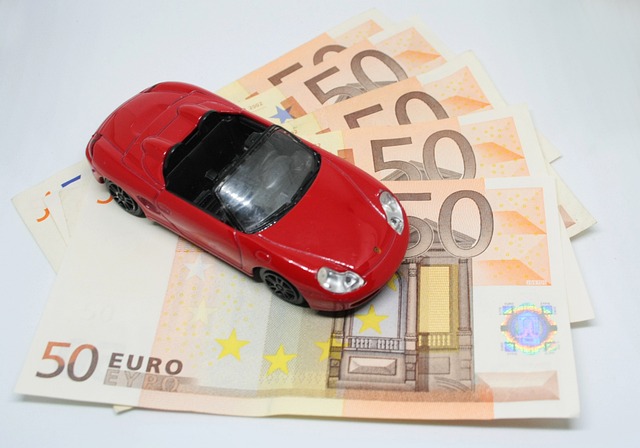Discover How Bank Repossessed Cars Are Sold in the United States for 2025
Did you know repossessed cars often sell below market value but come with unique buying conditions and restrictions? This article explains where to find them, how auctions work, and what to consider before purchasing a bank repossessed vehicle in the United States.

Understanding Bank Repossessed Cars
Bank repossessed cars are vehicles reclaimed by financial institutions when owners fail to meet financing or lease obligations. After repossession, banks typically sell these vehicles to recover losses. This process often results in prices lower than usual, as banks seek to liquidate these assets fairly quickly.
Key features of bank repossessed cars:
- Sold “AS IS”: These vehicles are sold without warranties or guarantees, so buyers accept their condition as-is, which may require repairs.
- Generally Lower Prices: Repossessed cars may be priced below retail and wholesale market rates due to the quick-sale objective.
- Varied Condition and Availability: Selection can vary widely, including newer sedans, older trucks, SUVs, motorcycles, and other vehicle categories.
Finding Bank Repossessed Cars in the United States
Online Auctions: Capital Auto Auction
One platform enabling access to repossessed vehicles nationwide is Capital Auto Auction. This site runs weekly online vehicle auctions, featuring an assortment of inventory including bank repossessions, dealer consignments, and government vehicles.
- How It Works:
- Sign up for a free membership on the Capital Auto Auction website.
- Log in to join live online auctions via computer or smartphone.
- Place bids on vehicles anywhere in the United States.
- Available Inventory Includes:
- Cars, trucks, motorcycles, boats, RVs
- Some vehicles may be listed for under $1,000
- New inventory is updated weekly
This online format enables individuals and businesses across the country to participate in auctions conveniently.
Local Banks and Regional Auctions
Besides national platforms, some buyers pursue local alternatives:
- Some banks conduct regional repossessed vehicle auctions or partner with local auction houses.
- Contacting local banks or credit unions can yield information on upcoming sales.
- Local government surplus auctions may occasionally list repossessed vehicles.
Specialized Listing Platforms
In some states, specialized websites focus exclusively on repossessed vehicles by bank and location. For example, RepoFinder.com features bank-owned vehicles in California categorized by city and year. Although this is state-specific, comparable resources may exist elsewhere and can be found via online searching or bank inquiries.
Important Considerations When Purchasing Repossessed Cars
“Sold As Is” Condition and No Warranty
- Banks typically sell repossessed vehicles without warranties, meaning buyers accept the current condition.
- Buyers should conduct due diligence by checking vehicle history through services like Carfax and inspecting vehicles prior to purchase when feasible.
Costs and Fees
- Although auction sale prices may be below market value, buyers should factor in additional costs such as buyers’ fees, taxes, registration, and transportation.
- Insurance premiums for repossessed vehicles tend to be reasonable in comparison to new cars.
- Prepare for potential repair or maintenance expenses.
Eligibility and Purchase Process
- Auctions are usually open to individuals and businesses throughout the United States.
- Online auctions require registration and may demand a refundable deposit.
- Payment is generally expected promptly after winning a bid.
- Verify clear title status before bidding, as some vehicles might have liens or title complications.
Approaching Auctions to Find Suitable Vehicles
- Auction inventories refresh regularly, so frequent monitoring is advantageous.
- Establish clear budgets and review vehicle types and conditions carefully.
- Many platforms provide filters by price, year, and type to help narrow options.
- Consistent participation and patience can improve the likelihood of locating desired vehicles.
Benefits of Bank Repossessed Vehicles
- Potential Cost Savings: Lower purchase prices and reduced depreciation compared to new cars.
- Wide Selection: Diverse vehicle types including family cars, trucks, and specialty vehicles.
- Convenience: Online auctions make these cars accessible nationwide.
- Insurance Affordability: Insurance may be less costly than for brand-new vehicles.
Limitations and Risks to Consider
- Purchases are without warranties; repairs may be required shortly after purchase.
- Vehicle histories may be incomplete, and hidden issues could exist.
- Title and registration processes can sometimes be complicated after auction purchases.
- Some auctions include additional fees—review terms and conditions carefully.
Summary
In 2025, purchasing bank repossessed cars in the United States is facilitated by online auctions such as those operated by Capital Auto Auction. Buyers may find vehicles priced below conventional market levels but should be ready to buy “as is” without warranty protection. Staying informed about auction schedules, understanding purchasing requirements, and accounting for potential repair and ownership costs are crucial steps toward making an educated buying decision.
Sources
Disclaimer: All content, including text, graphics, images and information, contained on or available through this web site is for general information purposes only. The information and materials contained in these pages and the terms, conditions and descriptions that appear, are subject to change without notice.




